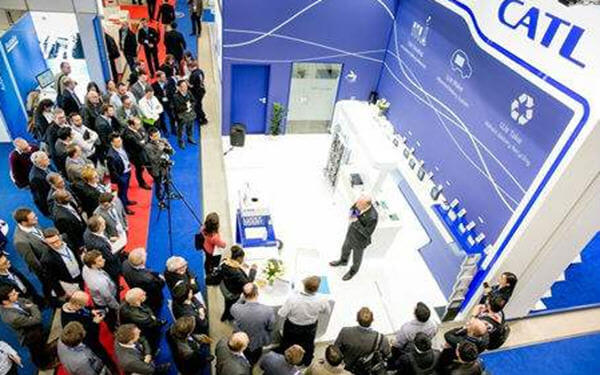
Chinese battery maker Contemporary Amperex Technology Ltd (300750.SZ) (CATL) will build its first production site in Europe in Germany, agreeing a major contract with BMW (BMWG.DE) to supply lithium-ion batteries.
Europe’s lack of its own production capabilities for the cells that power electric cars has prompted warnings that it could leave its car industry exposed and too reliant on others.
A contract to build the new plant was signed on Monday during a visit to Germany by China’s Premier Li Keqiang.
Around 240 million euros ($280 million) will be invested in the first phase of the project, Wolfgang Tiefensee, Thuringia’s minister of economic affairs, told journalists.
BMW plans to source 4 billion euros ($4.7 billion) of battery cells from CATL over the next few years, with 1.5 billion euros coming from the new site in Erfurt in eastern Germany, the carmaker’s purchasing head, Markus Duesmann, said.
CATL, the world’s largest maker of battery cells for electric vehicles, said the new factory was just its first step in Europe.
“We want to supply all the OEMs (manufacturers) in Europe,” Chairman Robin Zeng said. “If the Thuringia project is successful then we can consider other locations.”
The CATL factory will create about 600 jobs and reach production of 14 gigawatt hours (GWh) by 2022. CATL reached shipments of 12 GWh in 2017.
German Chancellor Angela Merkel said the CATL investment was a good step but said it did not rule out Europe eventually competing with the Chinese. “If we could do it ourselves, then I would not be upset,” Merkel said.
The VDMA engineering industry association said it hoped CATL’s investment could help drive further investment in battery technology in Europe.
Duesmann said earlier BMW had invested in some of the costs for the CATL factory in Erfurt, but both he and Zeng declined to say how much.
Duesmann said BMW was investing in cell research but a decision on whether to produce battery cells itself had not been made. “I don’t rule it out,” he said.
BMW is “very comfortable” with two suppliers of battery cells at the moment, but could add a third and is in talks with eight manufacturers, he added.
Duesmann said he would welcome it if other carmakers also wanted to invest in the Erfurt plant.
However, BMW has no plans to jointly purchase cells with rival Daimler (DAIGn.DE), he said, because of the competitive advantage that can be gained if batteries give greater range or can be charged faster.
Daimler said its strategy was to buy components where they are produced. “We welcome the decision of CATL to manufacture in Germany and are in talks regarding this,” a spokesman said.
Ambitious plans for electric vehicle battery production have driven sharp price rises in recent years for lithium and cobalt, which is used to stabilize and extend the life of lithium-ion rechargeable batteries, and has raised fears over the security of supply of those metals.
BMW is sourcing raw materials for the cells itself to pass to the battery makers, in particular cobalt, and is currently negotiating long-term contracts.
Duesmann said BMW would only conclude contracts where inhuman conditions and child labor were ruled out. It said it was not sourcing cobalt from mines in Democratic Republic of Congo.
Source: Reuters